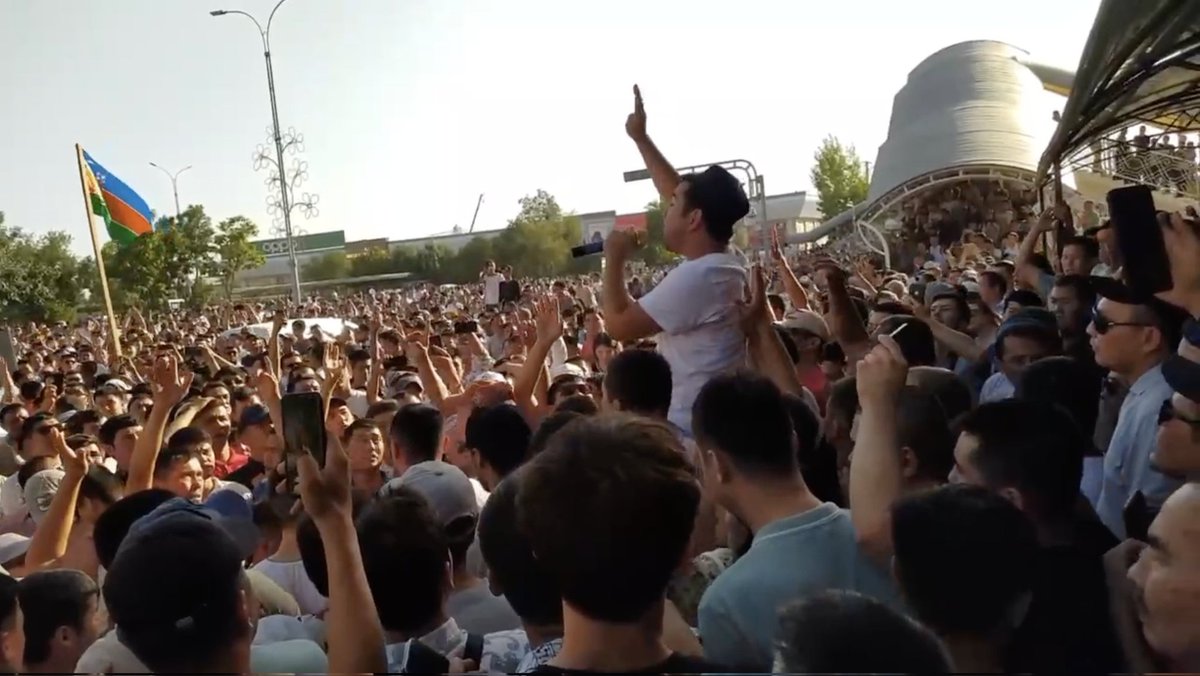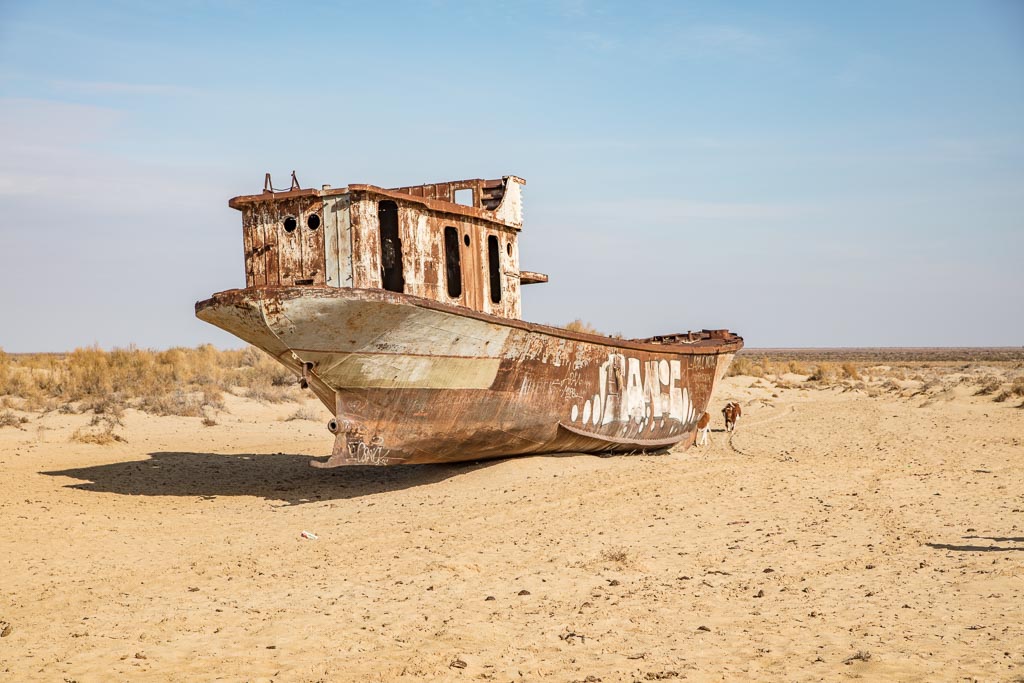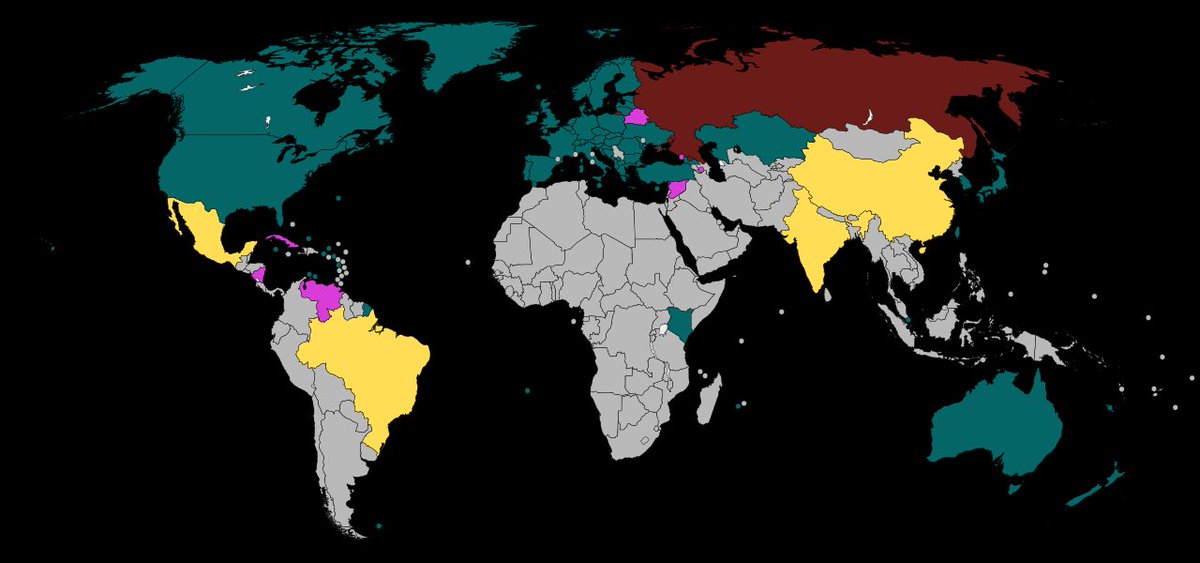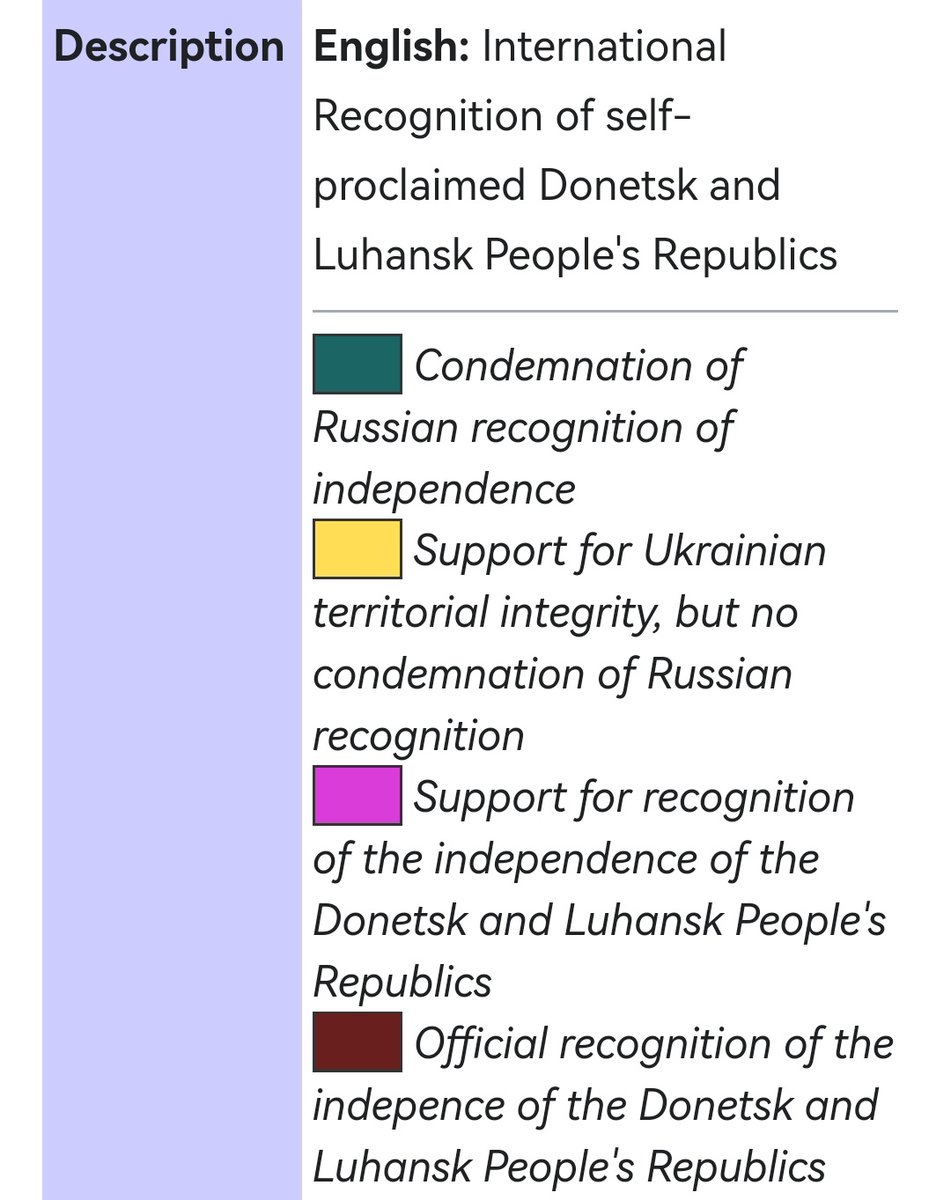
Dagestan's Politics: a Short Introduction
Starting with the conclusions:
I expect mobilisation to push people to engage in active resistance, but there is no clear path to armed conflict just yet. ‘Separatism’ is unlikely to come back to Dagestan. 🧵
Starting with the conclusions:
I expect mobilisation to push people to engage in active resistance, but there is no clear path to armed conflict just yet. ‘Separatism’ is unlikely to come back to Dagestan. 🧵
The popular view of Dagestan's politics is that they happen somewhere between extremism and separatism, and the authority's attempts to contain them.
Indeed, the Caucasus Emirate and Daesh/ISIS have many times featured in news coming from the region, and for a reason.
(Map: propaganda portrayal of the ‘provinces’ proclaimed by ISIS in the North Caucasus, never actually governed by them of course.)
(Map: propaganda portrayal of the ‘provinces’ proclaimed by ISIS in the North Caucasus, never actually governed by them of course.)
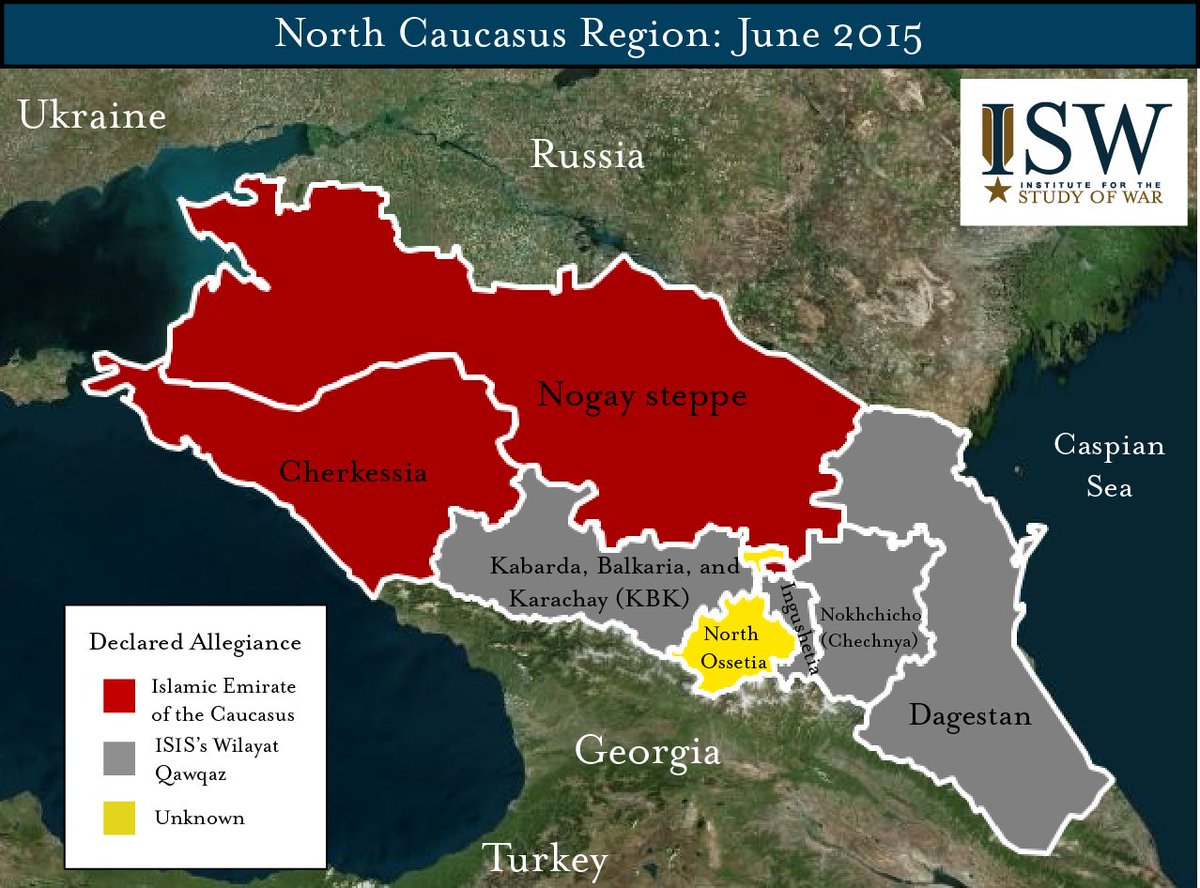
Add to that the 1990s episodes of separatism and you have the picture of a region in chaos ready to go. 
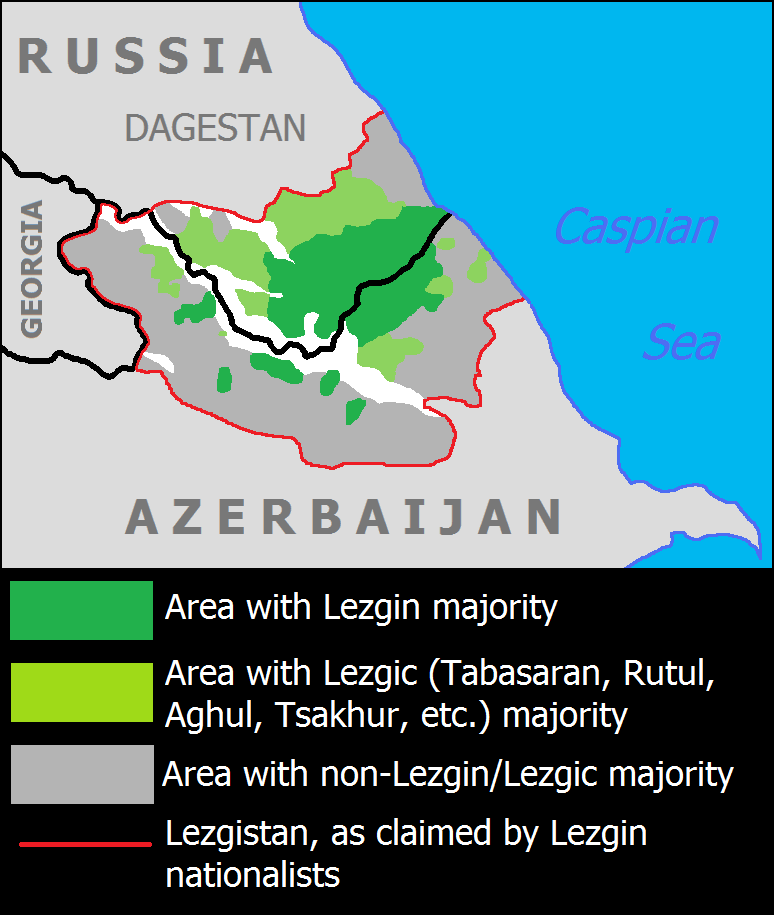
However, these two features do not capture all elements of the region's politics. Extremism and separatism are consequential and necessary to bear in mind, but insufficient for getting the whole picture.
The key element missing is Dagestan's unique consociational system of government. No equivalent to it exists in the Russian Federation and arguably elsewhere in the world.
The idea behind this system is to give balanced representation in government to Dagestan's different nationalities/ethnic groups. Looking at the ethno-linguistic map of Dagestan, the need for this becomes evident. 
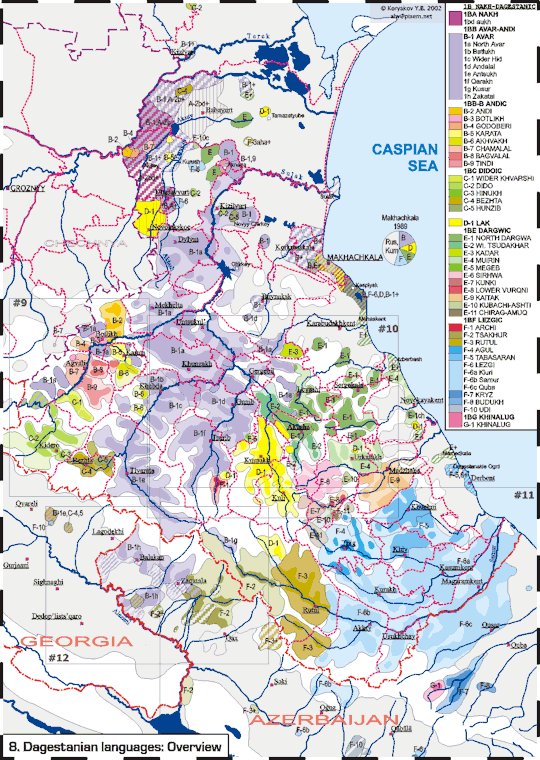
There are fourteen ‘titular’ nationalities in Dagestan, although arguably more could make a claim to that status. Because of this diversity, the consociational system should – in theory – produce representative administrations down to the municipal level.
What makes this system unique is the diversity of Dagestan and the system's reliance on corruption. Tricked elections ensure that members of gov 1) are part of United Russia and 2) belong to the area's main ethnic group.
The system is meant to create what the Kremlin wants from Dagestan—stability. In the 1990s, when compared to war-torn Chechnya and Ingushetia-North Ossetia clashing with one another, Dagestan was ‘stable’. Each ethnic group had its municipalities where ‘their’ people ruled.
There have been disputes about the boundaries of certain municipalities. There have also been attempts by politicians from the larger groups (Avar, Dargin) to impose their will. But the system enables groups to balance against one another, often w/Kremlin support.
This is not to say that life in the region is ideal. Far from it. In the 1990s the economy was in shambles and criminal structures (‘clans’) took over many aspects of life in the region. Exclusionary nationalisms never boiled out but violent outbursts remained ever present.
Then, in 2000, a cycle of violence began. It drew from high unemployment rates and state repression. Repression against Salafism was particularly harsh as the authorities (and many people, tbh) conflated rigourist interpretations of Islam with extremism and terrorism.
(‘Salafism’ and ‘Wahhabism’ are taken as synonyms by many in the region even though strictly speaking they are not.)
These factors, combined with violence entrepreneurs and radical ideologies, fueled cycles of radicalisation, resulting in the violence witnessed in Dagestan in the 2000s and 2010s.
Yet, there is a reason why I did not begin this thread by discussing the violence. Murder rates have been falling across the board in the North Caucasus for years now. 
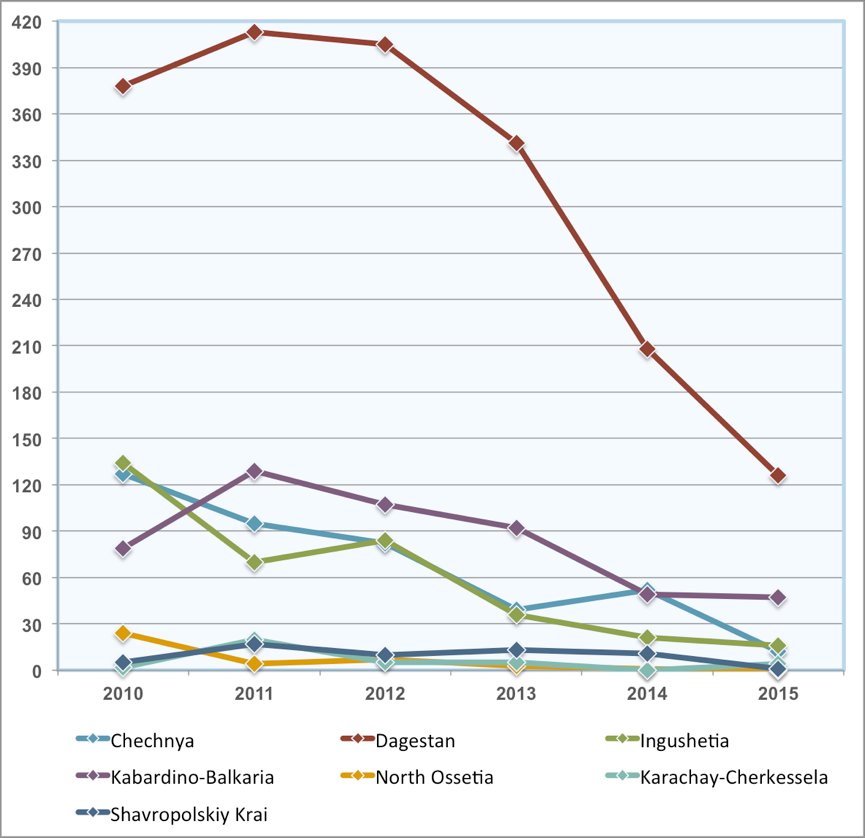
This decline of violence represents the foremost goal of the Kremlin, for it is a key metric in their understanding of ‘stability’ in the region.
In the Putin era, Dagestan's economy remained poor but federal transfers and emigration took the edge off.
In the Putin era, Dagestan's economy remained poor but federal transfers and emigration took the edge off.
The clans remained a problem but the wealth of the federal transfers gave the criminal structures an incentive to play by some rules.
The depolitisation witnessed across the federation also reached Dagestan, resulting in exclusionary nationalism no longer being the mobilising force it was in the 1990s.
Depolitisation also meant that there was no impulse to create a supranational ‘Dagestani’ identity. People simply voted UR and retreated to their ethnic identities, passively assimilated into Russian culture or emigrated.
The fall of the Caucausus Emirate and the call of ISIS to fight in the Middle East meant that there were fewer people joining those groups and staying in Dagestan.
Much like the Kremlin and Putin himself, the system of government of Dagestan has just been ‘muddling through’.
The war creates extraordinary stress on the system. Casualties and mobilisation can shift the demographic balance in ways that the system could struggle to manage. Add to that the economic downturn and you can imagine what keeps the gov in Makhachkala awake at night.
Putin's impulse since 2012 has been to manage any unbalance in the North Caucasus through excessive coercion. Given today's circumstance, this approach could create a new cycle of violence. However, given the above, this violence will bounce between repression and resistance.
CONCLUSION: there is discontent but no ‘cause’ or group to capitalise on it to attain political goals. Popular resistance in Dagestan may stand out for its fierceness, but currently there are no basis for violence to scale up to what we saw in prior decades. FIN
Postscript: I hope this thread is interesting. For my research nowadays, I do not follow the North Caucasus as closely as I used to. For those interested in the region, I recommend following @chambersharold8 @CaucasianKnotEn @OCMediaorgru @NeilPHauer @dosh_magazine @kavkaz_realii
• • •
Missing some Tweet in this thread? You can try to
force a refresh


